Secrets Behind the Most Intriguing Japanese Traditions.
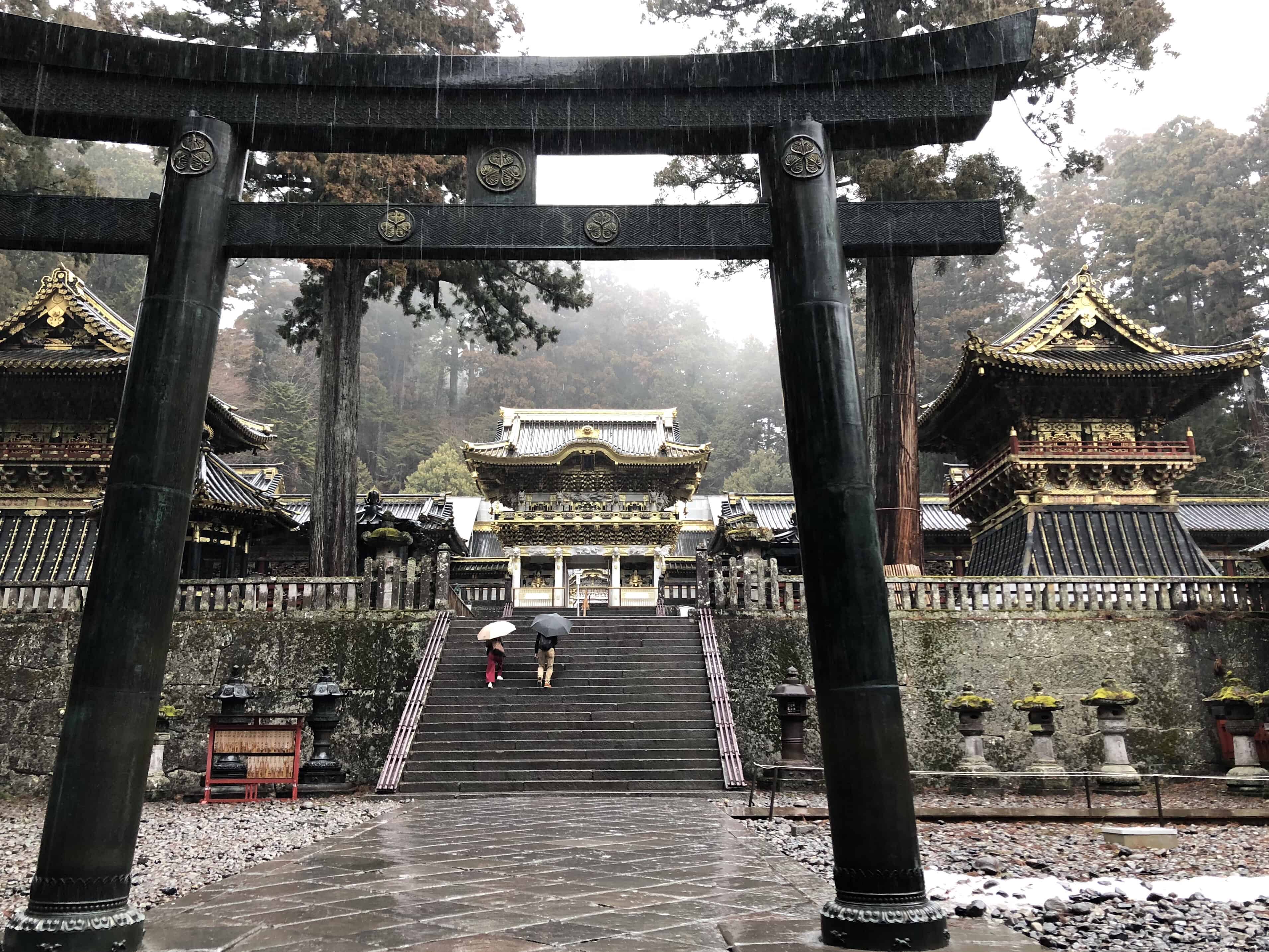
While in Japan, I slowly peeled through many layers of intriguing Japanese traditions. Here are the secrets behind some unusual aspects of Japan culture and tradition.
Hidden from the outside world until the late 1800s, the Japanese culture has evolved independently over centuries. An enigma for curious travellers. Day by day, I’m peeling through the many layers of this fascinating country.
Behold, some of the secrets I’ve gleaned through conversations with Japanese people and my own independent explorations across Japan so far:
Mount Fuji: Why do the Japanese worship the mountain?
Respectfully called Fuji-san, what is the Japanese tradition that makes locals worship this spectacular mountain?
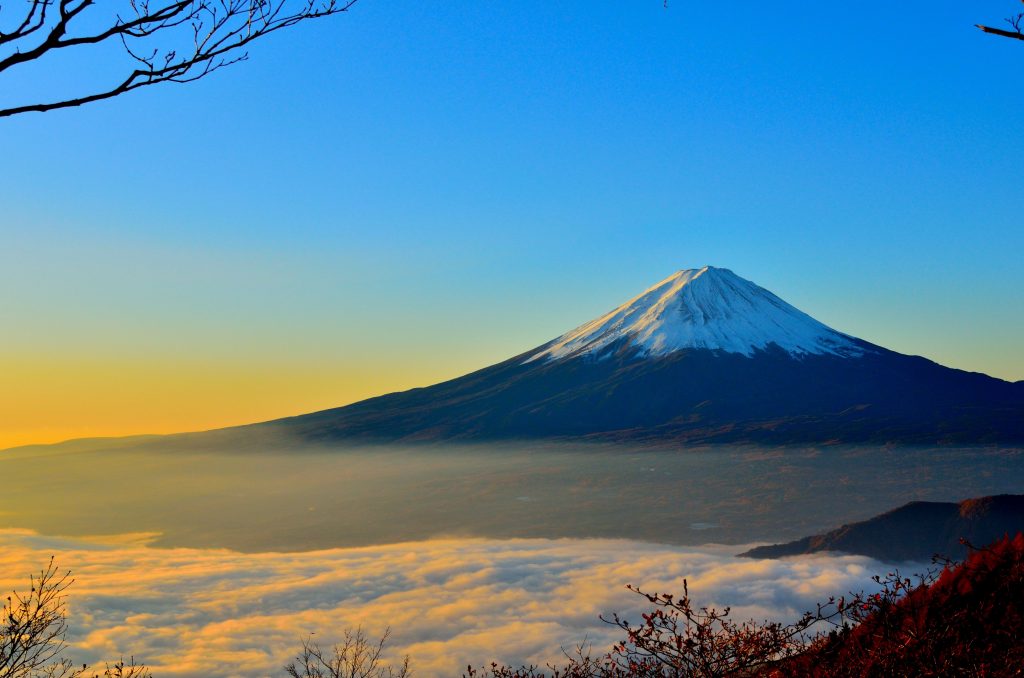
Mount Fuji is not just one of Japan’s iconic mountains, it is also revered by the Japanese people as a sacred mountain. Surprisingly, I learnt that Fuji-san is not the only mountain that is worshipped in Japan. So are all the other mountains, trees, rocks and rivers. It stems from Shintoism – the original animist Japanese faith – in which elements of nature are worshipped as “gods”, with Shinto Shrines often dedicated to them. Sounds exactly like my kind of faith <3
Also read: Go to the Caucasus Mountains, Find Your Soul, Set it Free
World’s fanciest toilets: Why the fuss?
I’ve been spending way too much time marvelling at the toilets in Japan. Why are they so high tech?
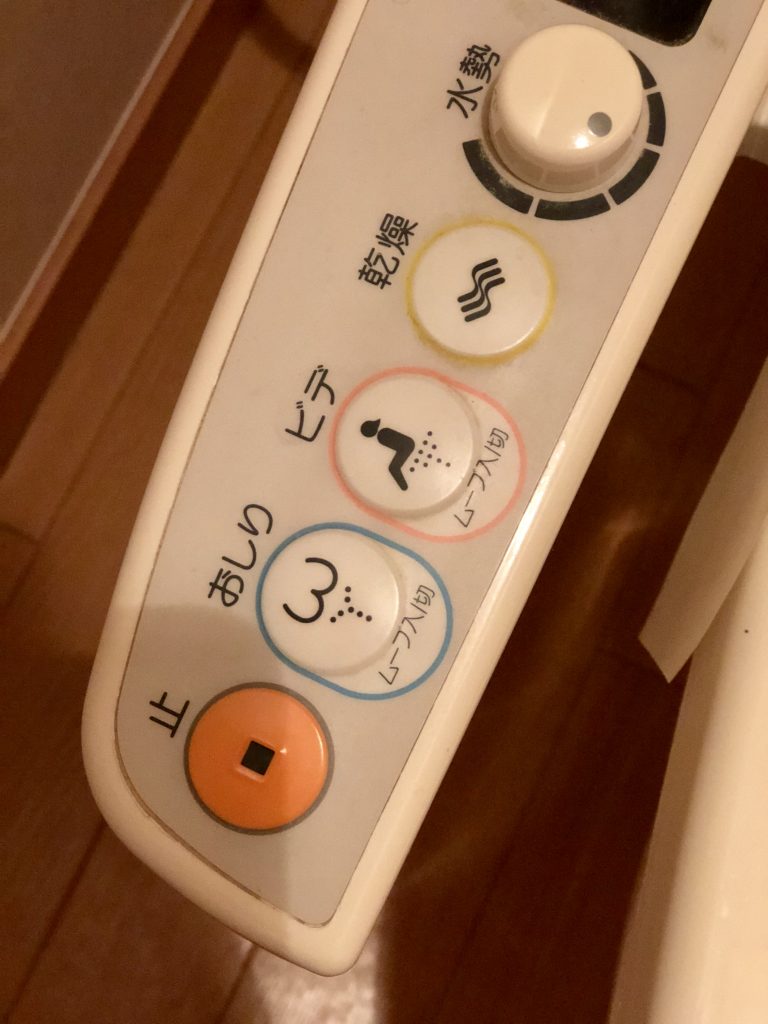
Toilets across Japan – from business hotels to traditional ryokans to train stations – are special. So far, I’ve tried oscillating bidets, air driers, temperature-controlled seats and auto seat lifters! And I’ve been curious as to why the Japanese people are so innovative about their toilet technology.
One theory suggests that Japanese culture expects an individual to always be social. From sharing meals to public baths to communal Sakura viewing, people hardly ever get private time to introspect – except in the bathroom. So voila, the toilets are a sanctuary; extremely comfortable and futuristic 😉
Also read: Quirky Things About Turkey
Traditional Japanese Tea Ceremony: Why so secret?
We manoeuvred our way behind the bustling streets and sprawling skyscrapers of Tokyo’s upscale Ginza neighbourhood, to an obscure alleyway. Then crawled through a tiny door into a non-descript tea room for a traditional Japanese tea ceremony. Why so secret?
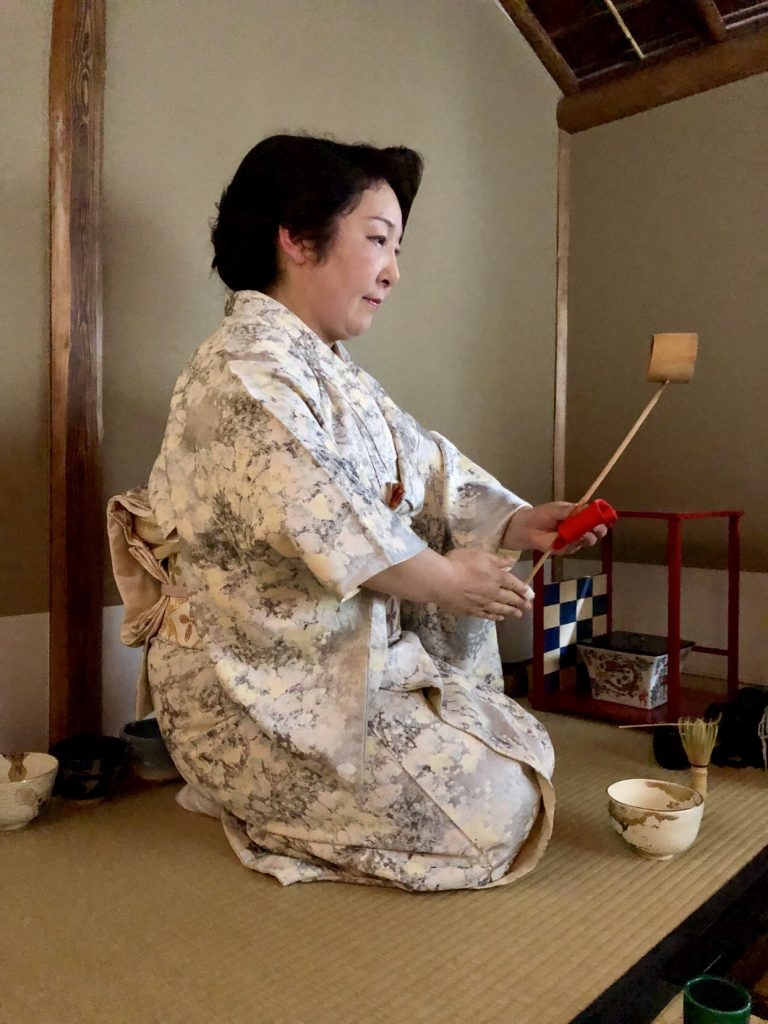
Turns out, Chanoyu – the traditional Japanese Matcha Tea Ceremony – began as a peaceful meeting space for the Japanese Samurai of yore. The obscure location of tea rooms ensured their meetings could be kept secret, and the tiny entrances prevented them from carrying their swords inside. At the tea ceremony, Takeda-san, our tea master asked us to cleanse our hands and heart before bending through a small door to enter the sacred tea room – by humbly bending on all fours, we all became equals.
Back in the day, all tea masters were male. These days, the tea rituals remain the same, but many women train to become tea masters too; ours had been at it for 35 years.
I tried the traditional Japanese tea ceremony at Ginza Chazen in Tokyo. Cost: 3500 Yen (~INR 2100 / USD 35). Reservation required.
Fortune Telling: Long followed among Japanese traditions, but what if you get bad fortune?
If you visit a Buddhist temple or Shinto Shrine anywhere in Japan, chances are you’ll see a sacred tree or wooden bars covered with tied papers. These are not wishes, these are symbols of bad fortune!
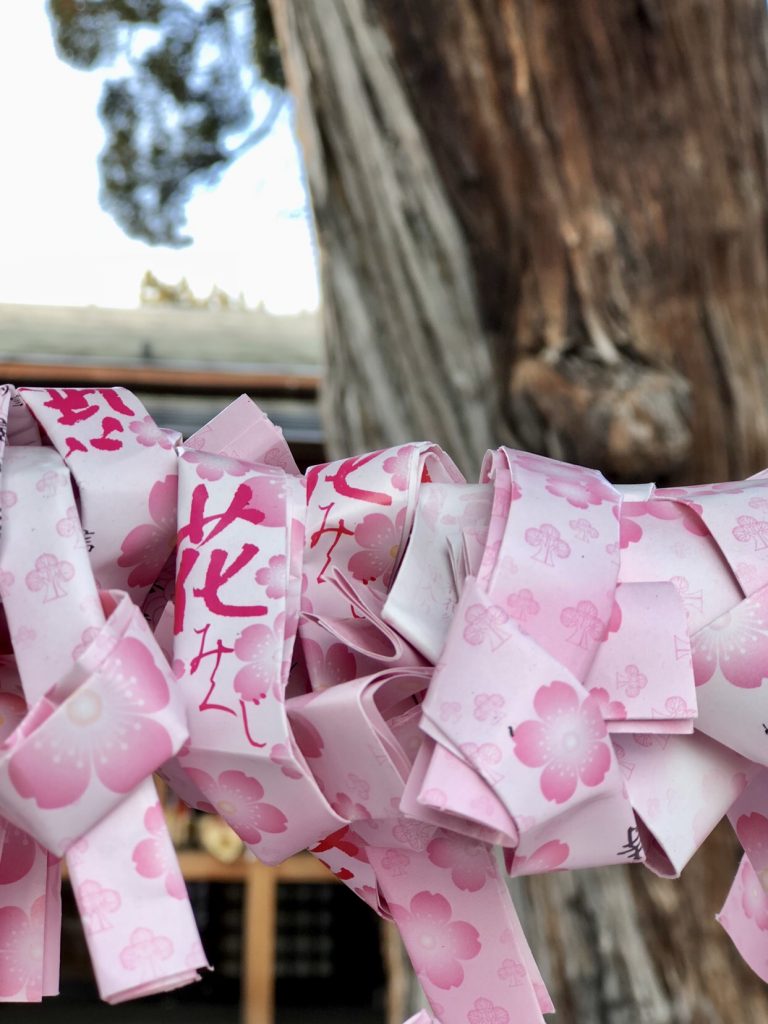
Fortune telling works through lucky draw at temples and shrines around Japan. For 100 Yen (honour system) I could shake a box, pick out a stick with a number on it and find the fortune paper with the corresponding number. The fortune is written entirely in Japanese – and when translated, it predicted “half luck” for me. Better than bad luck, but not as good as good luck! The detailed prediction sounded pretty depressing, so like thousands of others, I tied off my “bad fortune” to the temple’s sacred tree in an attempt to ward it off! Japanese people often carry their good fortune in their wallet or purse.
Also read: Life Lessons from 2 Years of Travelling
The land of salaried men in suits: Was Japan always so hardworking?
We’ve all heard of the hard-working Japanese people, the strict corporate culture and long working hours. But has Japan always been this way?
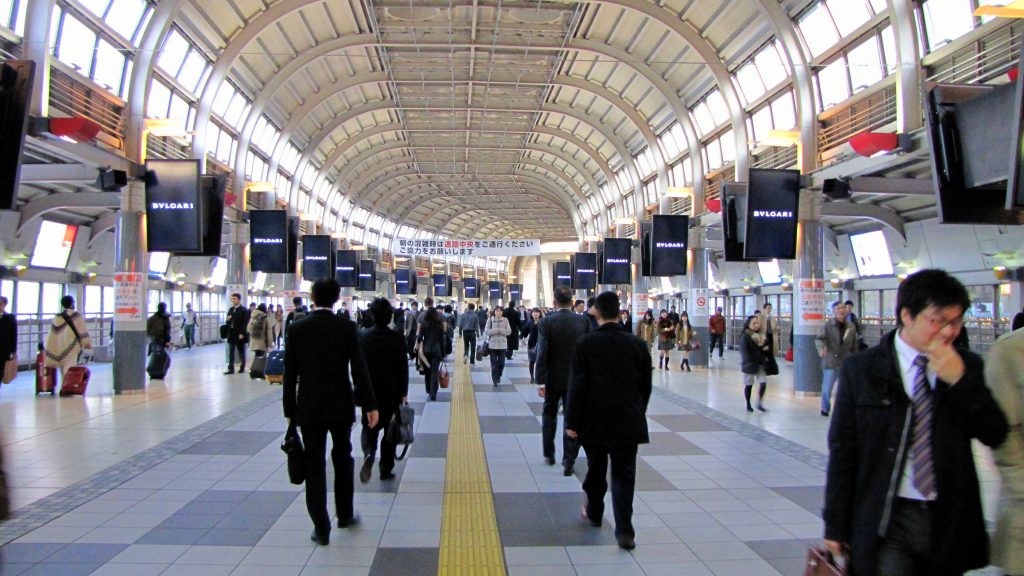
Indeed, in the chaotic frenzy of Tokyo city, it is hard to ignore the ubiquitous salaried businessmen in suits. So in a conversation with a 65-year-old Japanese man, I had to ask if this was linked to the Japanese culture or the ageing population?
I learnt that before Japan’s Meiji period, the locals were more carefree. But when economic development was prioritised under the Meiji rule (circa 1800s), a culture of hardwork was instilled in people. “If I don’t work really hard, even at 65, I feel like I’m not doing my best…,” he said candidly. But the younger generation seems to feel differently – and according to him, the laidback way of life is likely to return in a few decades.
Also read: How I’m Funding My Adventures Around the World
Snow monkeys in Onsens (hot springs): How did they join these old Japanese traditions?
In the Jigokudani Park in the Southern Japanese Alps, Japanese macaques (popularly called Snow Monkeys) bathe in the hot springs in winter, just like humans!
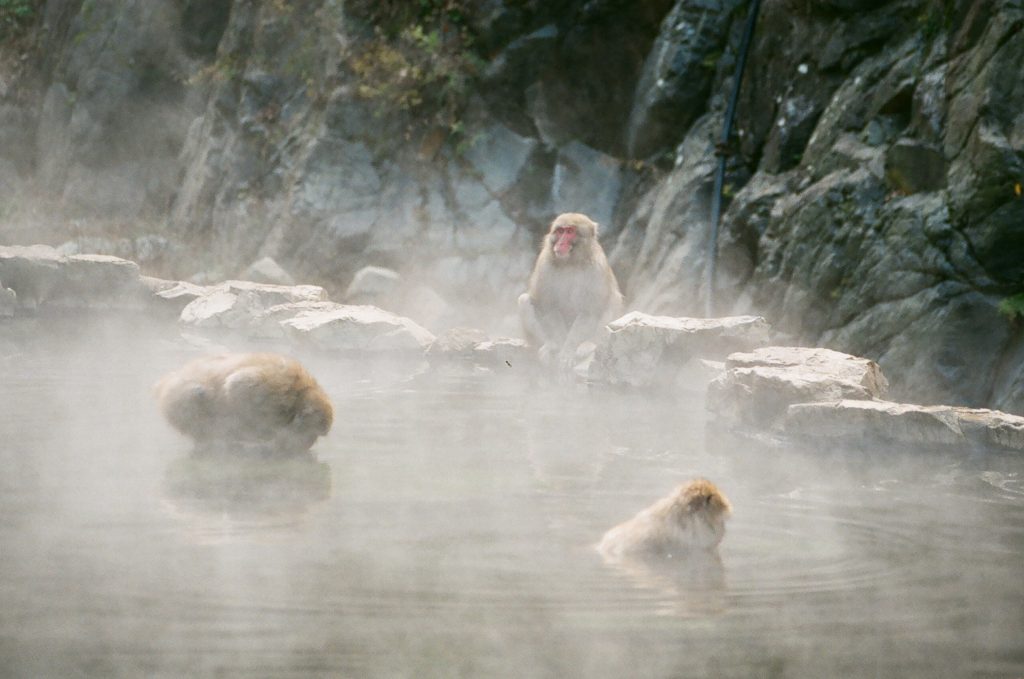
Legend has it that a few decades ago, a baby Japanese macaque jumped, by mistake, into an onsen (Japanese public bath with hot water from hot springs) at an inn in the Japanese Alps. It must’ve been pretty darn relaxing, for many of his tribe members started hitting the onsen for baths!
Years later, when the Jigokudani Park was established to resolve a man-macaque conflict, an onsen was created for the macaques. Every winter, they come down from the cold cliffs to bathe in the hot springs, fascinating scientists and researchers from around the world. What a sight!
The Jigokudani park is located in the Kanto region of Japan and can be reached with an easy half-hour hike.
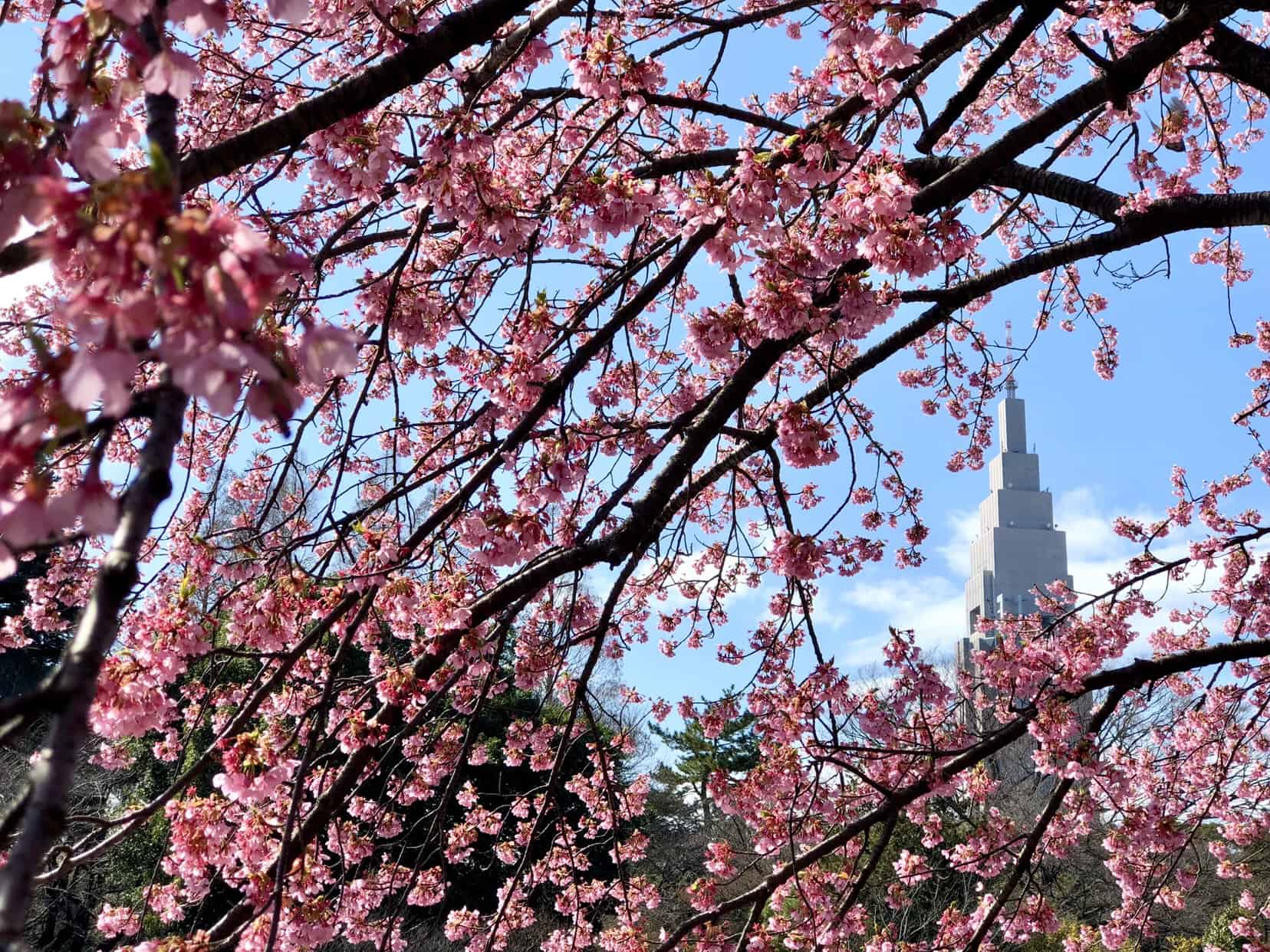
Truth be told, Japan is unlike anywhere I’ve been before. Every corner, every rock, every shrine, every flower has a deeper story. As I continue my surreal journey into rural Japan, I hope to learn more about the evolution of Japanese traditions, the secret life of geishas and spring fire rituals that have survived over centuries. Perhaps even join some Japanese friends for hanami (sakura viewing), as the stunning cherry trees promise to blossom soon!
Have you learnt the secrets to any fascinating Japanese traditions? Or is there one you’re curious about?
*Note: I spent my first week in Japan on a travel blogging campaign with Japan National Tourism Organization. Opinions on this blog are always my own.
Plan a trip to Japan:
10 Days in Japan: An Immersive Japan Itinerary for First Time Visitors
Things to Know Before Travelling to Japan for the First Time
Japan Tourist Visa for Indians: Requirements and Tips
Why Travelling in Japan is Like Nowhere Else in the World
Is the Japan Rail Pass Worth It? A Guide to Bullet Train Travel in Japan
The Ultimate Vegan Guide to Japan
How my Japan Trip Changed my Impression of Japanese People
Interesting posts about Japan on other travel blogs:
Uncornered Market: From Remote Control Toilets to Konbinis: Japan First Impressions
Green Global Travel: Japan Photos: 15 Pictures from a Dream Come True

Hi there! I’m Shivya, and I started this travel blog back in 2011, when travel wasn’t trendy, Instagram didn’t exist and AI wasn’t a thing (simpler times, I know!). I write about slow, meaningful and conscious travel – that is good for us, the places we visit, the people we meet along the way, and the planet at large. Settle down, grab a cup of tea, and read stories that remind you of the essence of travel. I’m so glad you found me!








What an interesting post, thanks for sharing secrets from my dream destination. I hope you uncover more on your trip
Thanks Niranjana, already on it. Next post coming soon 😉
Such an interesting post.. Really loved it, I was always curious to know about the Japanese traditions specially about the “Tea Ceremony” you’ve explained everything so nicely and after reading your post my curiosity for japan just increased further… 🙂
Glad to hear that Pranay! It’s an intriguing country.
Wonderful post.
Got to know about Japan.
I never knew one has to pay for tea ceremony. Thought it is something like serving tea/coffee to guests at home here.
Pardon my ignorance.
Loved your writing.
So from what I hear, it’s not actually done at home. Only formally, by tea masters. At temples and tea rooms.
Another Superb post. The post was informative and after going through it, I felt like, I now know a lot about japan, Honestly speaking.
I’m not much of reader Shivya but as I said earlier, the way you interpret things is outstanding.
Never thought of visiting to Japan and now I’m thinking too in the near future not just to admire the beauty or to know a little about their culture but to use that Hi-Tech toilet as well. HAHAHA 😀
What else do they have in their toilets? 50″ LED panels, XBOX, PlayStation etc?
Jokes apart, you can do a post on SAMURAI warriors and SUMO wrestlers.
Thanks Anshul! I’m sure you’ll love it – especially the hi tech toilets 😉 I’m hopefully going to learn to use a real Samurai sword in Tokyo soon :p
Haha 😀 that’s great. I would love to see you holding that huge Samurai sword.
My short work trip to Japan a couple of years ago didn’t allow for any leisure, but it piqued my curiosity so much that it’s my No.1 destination on my travel bucket list. The toilets, konbinis and stationery are some of my favourite things. Quality and timeliness are also the two aspects I appreciate the most. Loved your post, Shivya. Arigatou.
I can imagine J; been here 3 weeks now and feel like I could stay much much longer! Hope you make it for a leisure trip soon.
amazing post too gud ! always i love your post… thanks for sharing such a lovely post n keep it up
Thanks Karan; more coming soon!
I respect your way life. You are living a great life. Loved your post.
Aww thanks, I like it this way. So important that each of us follow our bliss 😉
Loved your take on this Shivya! Kept me curious till the very end. Absolutely cherish going through your blog
Thanks for reading Shwetha! Want to write so much more about this intriguing country!
Japan is a mysterious place for me. The stories of geishes and sumarai warriors always took me to a magical world. Your article was a journey which made me read till the end with the same curiosity. Great writing.
So glad you made it till the end, Jithin! I’m going to learn to use a real Samurai sword soon; shall be sharing all 🙂
Japan is my dream destination.And your blog helped me know a lot about this place which I was not aware of..Always a pleasure going through your posts.
Such a lovely post, Shivya. And Japan never ceases to amaze me 🙂
such a beautiful and informative post too and in your post has too much spectacular pictures 🙂
Such a lovely informative post, which has now piqued my interest. Is may a good time to visit the country. What is the best option (places to visit) for Sakura spotting ? Any info will be really appreciated. Thanks
Great blog, lovely and informative post too and in your post has too much spectacular pictures.
My daughter is planning a trip to Japan this winter so I have been reading up for ideas. Thanks for sharing these interesting Japanese traditions!